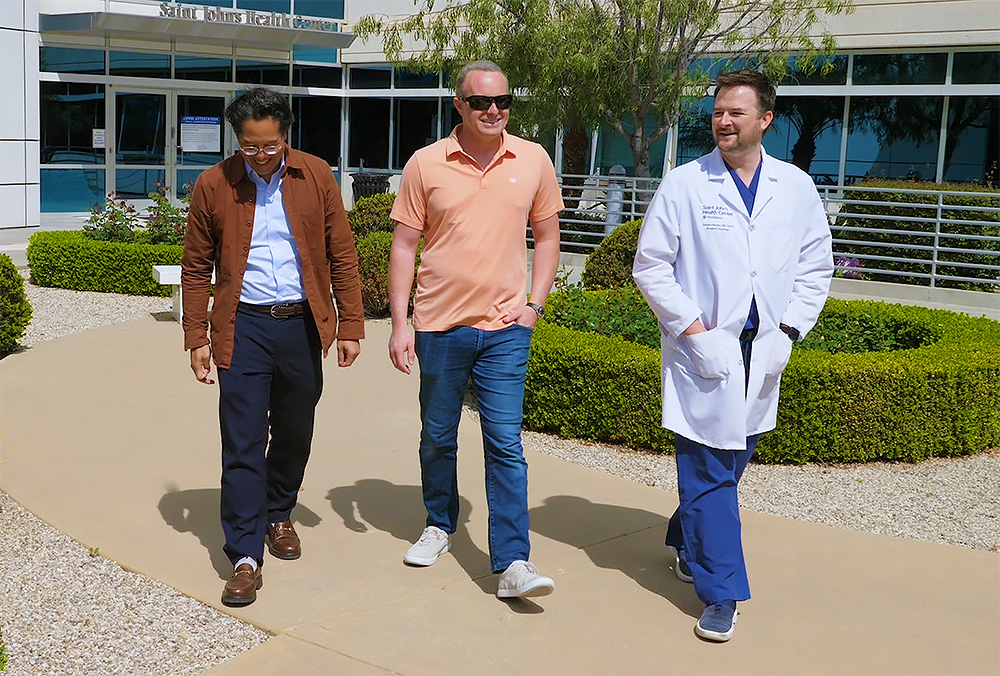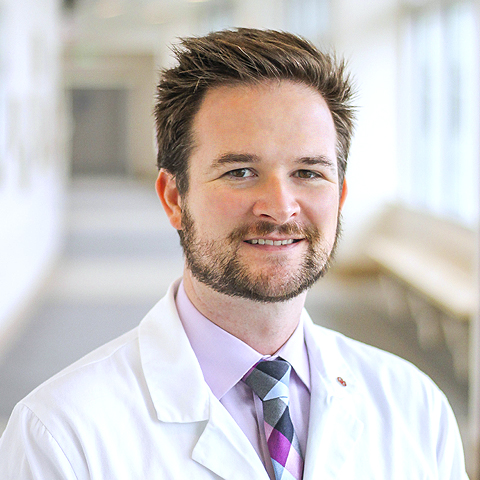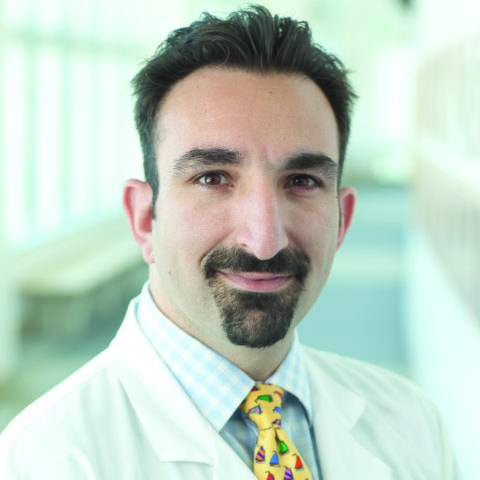
Tanner Deason Returns To Discuss Life Alongside Ongoing Adjuvant Therapy
Tanner Deason was diagnosed four years ago with Stage-4 melanoma including a single brain metastasis at the age of 31. Although Tanner’s diagnosis is life-threatening, the discovery was lifesaving. In a matter of months, the tumor in his brain could have taken his life. By way of a UTV accident while off-roading in the desert, Tanner was shepherded through scans and doctor visits that ultimately led him to Saint John’s Cancer Institute in Santa Monica, California, where he is currently being treated.
In his prior testimonial, recorded in July 2022 (see link below), Tanner left us wondering how his treatment was going. He disclosed that he was about to start on an adjuvant-targeted therapy for having a BRAF-positive gene mutation. Though targeted therapies attack specific genes and proteins to stop cancer cell growth—killing cancer cells without damaging healthy cells—they are not always a durable form of treatment. In addition, a BRAF-positive gene mutation in melanoma can be a more aggressive cancer. Though melanoma is a less common form of skin cancer, they are more likely to spread to other places in the body, where prolonged treatment may be needed.
Do You Know What Adjuvant Therapy for Metastatic Melanoma Means?
Prolonged treatment that is designed to keep cancer from returning (adjuvant therapy) does not mean your life is over or ending. Cancer can be managed with proactive care, and today, Tanner’s doctors continue to optimize his treatment. He may go on or off certain medications depending on the presence of cancer, or his body’s response to the medication. Personalized medicine and treatment means dedicated physicians supported by science. Saint John’s Cancer Institute is renowned for its translational research, which continues to advance personalized medicine.
Meet Tanner’s Multidisciplinary Team at Saint John’s Health Center
Tanner Deason, Trevan Fischer, MD, Timothy Kristedjjs, MD chat outside the Health Center in Santa Monica, California.
Why get screened for skin cancer or melanoma at a relatively young age?
If you spend your entire life in the sun and have fair skin, freckles, blue eyes, and even red hair, you are at a greater risk for skin cancer and melanoma. Research indicates that skin cancers and melanomas result from a lifetime of exposure to UV rays. As Dr. Fischer points out in the video above, though melanoma is not commonly a gene-mutated disease, it’s a “kind of” genetic disease; families with the same gene attributes, such as skin tone, eye color, and hair color are at risk to get skin cancer or melanoma.
A poignant representation of the significance of not getting screened is more accurately described by Tanner when he asked Dr. Kristedja matter-of-factly, “If that would have been properly, let’s say, diagnosed and removed 10 years ago when I first had it, would that have been the end of it?” Dr. Kristedja responded, “We don’t know. I think the the great likelihood is that that would have been it.” If we are all aware of our environment, and especially those living in places like Southern California with high UV exposure, that awareness can be the difference between a life-changing event and a lifesaving one. Please see a dermatologist for any suspicious growth. For more information on skin cancer and melanoma, read here.
Can we talk about Tanner’s innate ability to be resilient?
Tanner’s ability to be resilient answers the question: Is it circumstance, character, or both? While discussing his ongoing treatment squarely, he replied instantaneously, “What other alternative is there?” Circumstances be damned. Indeed, as harsh as it is, the shadowy side of cancer is certain, and knowing the likelihood of that certainty, Tanner remained steadfast. His unstoppable character, juxtaposed with his having a care team he trusts, affording him a positive mentality. Treatment is just another aspect of his life now. In fact, Tanner went to Disneyland, a family BBQ, and returned to work just 3 days after his initial brain surgery. Okay, rockstar.
Abilities aside, the most frequent advice we have heard from patients is to, “Find those you can trust,” believing they will care for you and ease your way. Tanner is remarkable, and so is his journey, yet his advice is the same.
UPDATE TO BLOG: As of today, April 25th, 2024, Tanner has indicated in email that his PET scan came back negative and is completely off all adjuvant medications! He will still be following-up with his care team to see how he does off treatments but, we couldn’t be happier for Tanner and his Team!
Tanner’s Initial Journey captured in July 2022, Click here to watch now.
Meet Tanner’s Care Team!!

Assistant Professor of Surgical Oncology |

Associate Professor of Neurosurgery |

Medical Oncologist |

Christine Boley, N.P. Nurse Practitioner |


